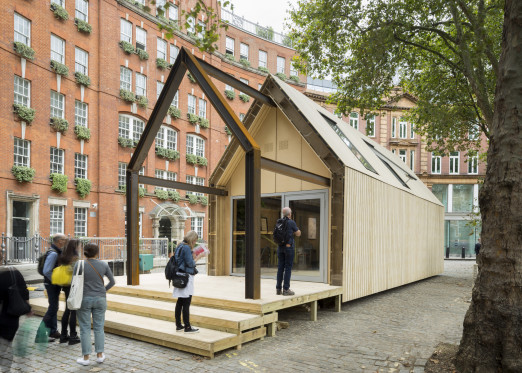By removing water from its cleaning products, minimising packaging and selling online, Splosh strips out unnecessary waste in production and distribution. Customers buy the concentrated product online and pouches are sent to their home. Here users mix the contents of the sachets or pouches into the bottles from the starter pack. Pouches can be sent back for refilling and, at the end of life, the pouches themselves are reprocessed into other products.
Exchange / Optimise
Domestic cleaning products. Splosh, (Concentrated detergents Hay-on-Wye, Wales, 2013)
Interview with Angus Grahame, founder of Splosh
Could you tell us a little bit about your professional background and how you got interested in the Circular Economy?
Angus Grahame: I am a start-up entrepreneur having sold my first business (Activity Superstore) to a management buyout. I became interested in the circular economy as I tried to develop an FMCG brand that didn't harm the environment.
How did you arrive at the idea of Splosh as opposed to a different circular economy product?
Angus Grahame: A long process of trial and error! I identified plastic waste as a major issue for many household products – the idea of Splosh came to me while putting plastic bottles out for recycling in the Co-op car park of Hay on Wye, while watching a mum leaving the supermarket with a bag full of plastic bottles. Something struck me as very wrong in the way supermarkets were doing things.
Could you describe the process of developing your business model?
Angus Grahame: Selling bottles that contained mainly water (just about every household product) wasn't going to work when distributing by mail order. I then looked at delivering ourselves over a small area. After that I came to the idea of taking the water out of products in order to deliver them – suddenly the business model made sense.
What kind of market research did you do and what insights did you get?
Angus Grahame: As I am sure happens with many start-ups, the research was based on a gut feel.
How would you describe the different mindsets of circular thinking/design for the circular economy versus traditional linear thinking for the linear economy?
Angus Grahame: Looking at your product holistically – in other words what happens throughout its life. As the designer of the product you are responsible for what happens to it after use, not just the consumer. The key is realising that this mindset makes economic sense because when your product is trashed, you (the seller) have lost value.
What has been the most challenging part of developing a business guided by the philosophy of the circular economy?
Angus Grahame: Formulating products that are very concentrated i.e. that have very little water in them. Many of our products are world firsts.
What has been your marketing strategy and what has been the response of customers so far?
Angus Grahame: As a small business we can't hope to match the marketing budgets of our large competitors, so we have relied on word-of-mouth and promotions. These have been very successful for us.
Next steps?
Angus Grahame: The world!
Click for more on Splosh


